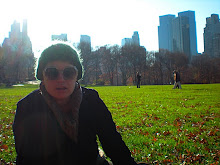The Burning of Paper Instead of Children
by Adrienne Rich
1. My neighbor, a scientist and art-collector, telephones me in a state of violent emotion. He tells me that my son and his, aged eleven and twelve, have on the last day of school burned a mathematics textbook in the backyard. He has forbidden my son to come to his house for a week, and has forbidden his own son to leave the house during that time. "The burning of a book," he says, "arouses terrible sensations in me, memories of Hitler; there are few things that upset me so much as the idea of burning a book."I was in danger of verbalizing my moral impulses out of existence. --Daniel Berrigan, on trial in Baltimore
Back there: the library, walled
with green Britannicas
Looking again
in Durer's Complete Works
for MELANCOLIA, the baffled woman
the crocodiles in Herodotus
the Book of the Dead
the Trial of Jeanne d'Arc, so blue
I think, It is her color
and they take the book away
because I dream of her too often
love and fear in a house
knowledge of the oppressor
I know it hurts to burn
2. To imagine a time of silence
or few words
a time of chemistry and music
the hollows above your buttocks
traced by my hand
or, hair is like flesh, you said
an age of long silence
relief
from this tongue this slab of limestone
or reinforced concrete
fanatics and traders
dumped on this coast wildgreen clayred
that breathed once
in signals of smoke
sweep of the wind
knowledge of the oppressor
this is the oppressor's language
yet I need it to talk to you
3. People suffer highly in poverty and it takes dignity and intelligence to overcome this suffering. Some of the suffering are: a child did not had dinner last night: a child steal because he did not have money to buy it: to hear a mother say she do not have money to buy food for her children and to see a child without cloth it will make tears in your eyes.
(the fracture of order
the repair of speech
to overcome this suffering)
4. We lie under the sheet
after making love, speaking
of loneliness
relieved in a book
relived in a book
so on that page
the clot and fissure
of it appears
words of a man
in pain
a naked word
entering the clot
a hand grasping
through bars:
deliverance
What happens between us
has happened for centuries
we know it from literature
still it happens
sexual jealousy
outflung hand
beating bed
dryness of mouth
after panting
there are books that describe all this
and they are useless
You walk into the woods behind a house
there in that country
you find a temple
built eighteen hundred years ago
you enter without knowing
what it is you enter
so it is with us
no one knows what may happen
though the books tell everything
burn the texts said Artaud
5. I am composing on the typewriter late at night, thinking of today. How well we all spoke. A language is a map of our failures. Frederick Douglass wrote an English purer than Milton's. People suffer highly in poverty. There are methods but we do not use them. Joan, who could not read, spoke some peasant form of French. Some of the suffering are: it is hard to tell the truth; this is America; I cannot touch you now. In America we have only the present tense. I am in danger. You are in danger. The burning of a book arouses no sensation in me. I know it hurts to burn. There are flames of napalm in Catonsville, Maryland. I know it hurts to burn. The typewriter is overheated, my mouth is burning. I cannot touch you and this is the oppressor's language.
21 Love Poems by Adrienne Rich
The Dream of A Common Language
I
Whenever in this city, screens flicker
with pornography, with science-fiction vampires,
victimized hirelings bending to the lash,
we also have to walk...if simply as we walk
through the rainsoaked garbage, the tabloid cruelties
of our own neighborhoods.
We need to grasp our lives inseparable
from those rancid dreams, that blurt of metal, those disgraces,
and the red begonia perilously flashing
from a tenement still six stories high,
or the long-legged young girls playing ball
in the junior highschool playground.
No one has imagined us. We want to live like trees,
sycamores blazing through the sulfuric air,
dappled with scars, still exuberantly budding,
our animal passion rooted in the city.
II
I wake up in your bed. I know I have been dreaming.
Much earlier, the alarm broke us from each other,
You've been at your desk for hours. I know what I dreamed:
our friend the poet comes into my room
where I've been writing for days,
drafts, carbons, poems are scattered everywhere,
and I want to show her one poem
which is the poem of my life. But I hesitate,
and wake. You've kissed my hair
to wake me. I dreamed you were a poem,
I say, a poem I wanted to show someone...
and I laugh and fall dreaming again
of the desire to show you to everyone I love,
to move openly together
in the pull of gravity, which is not simple,
which carries the feathered grass a long way down the upbreathing air.
.jpg)

No comments:
Post a Comment